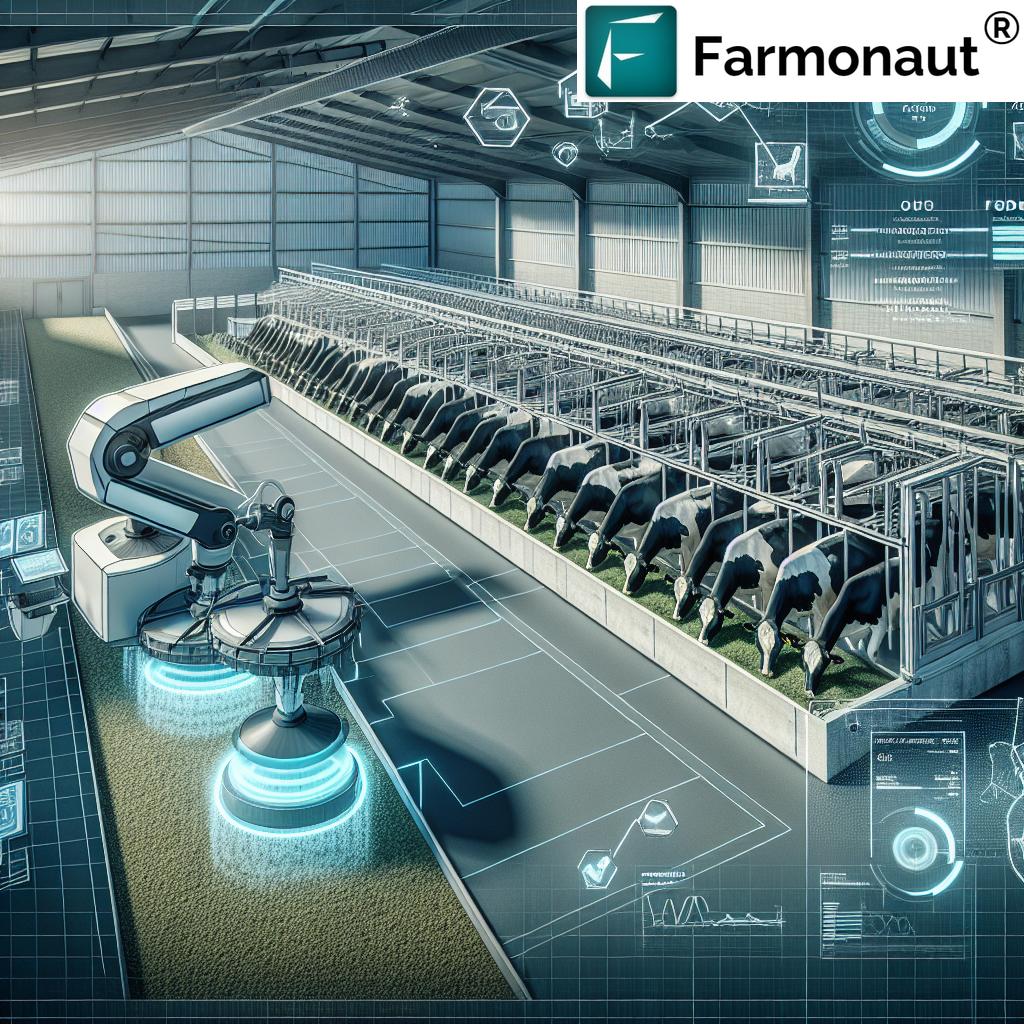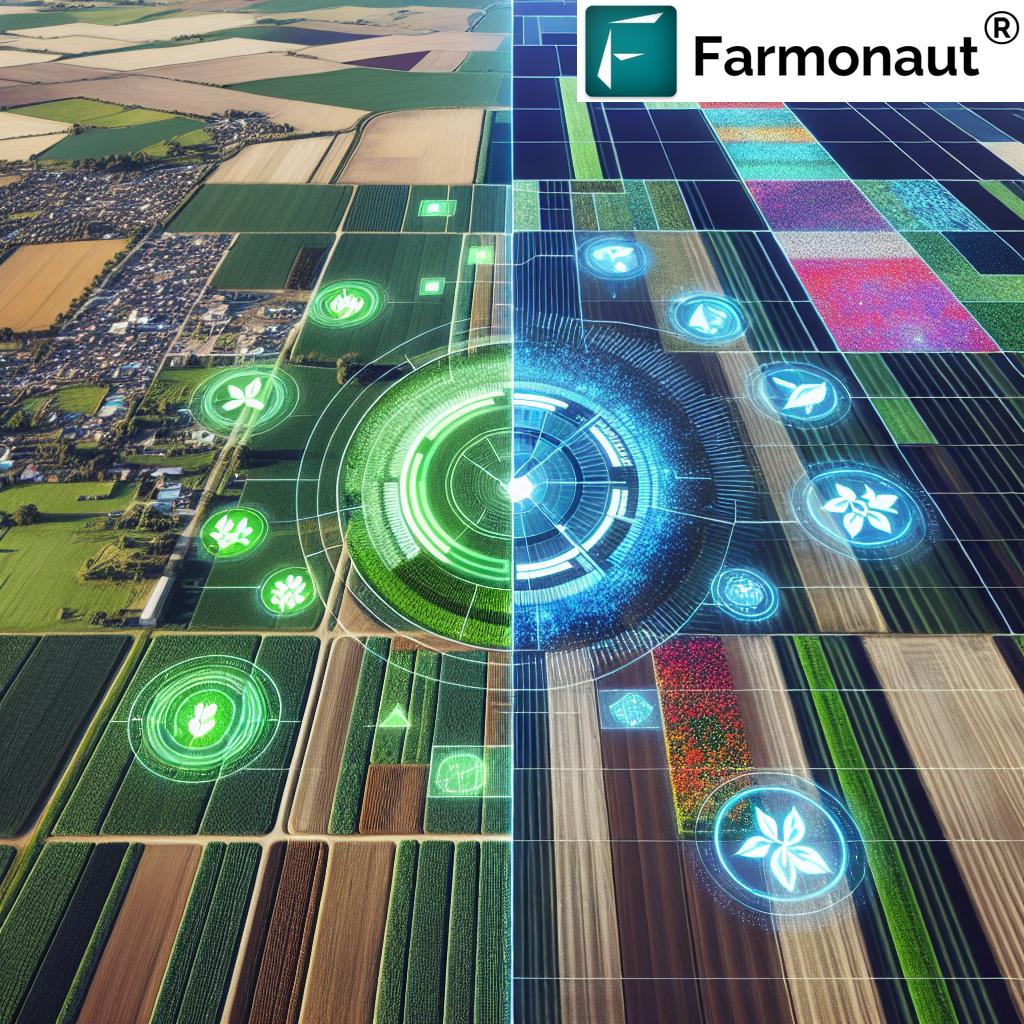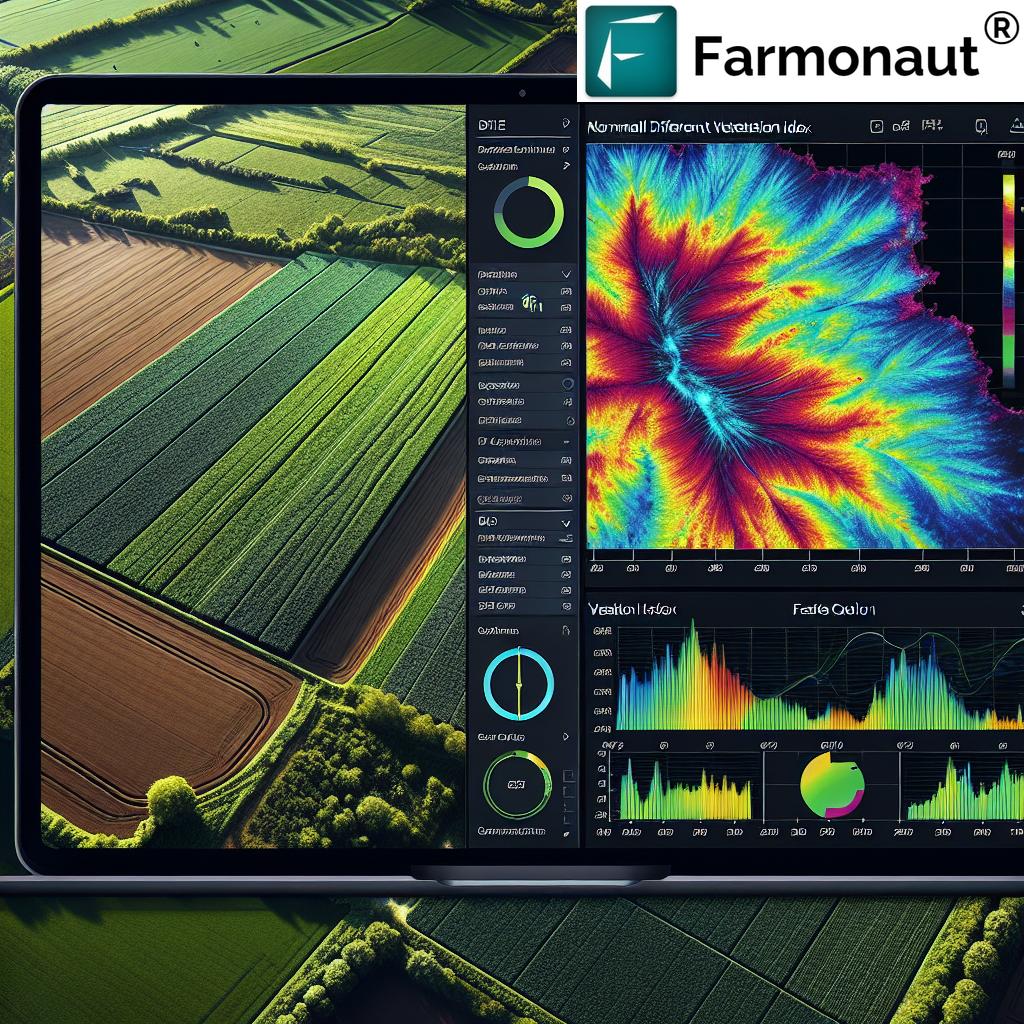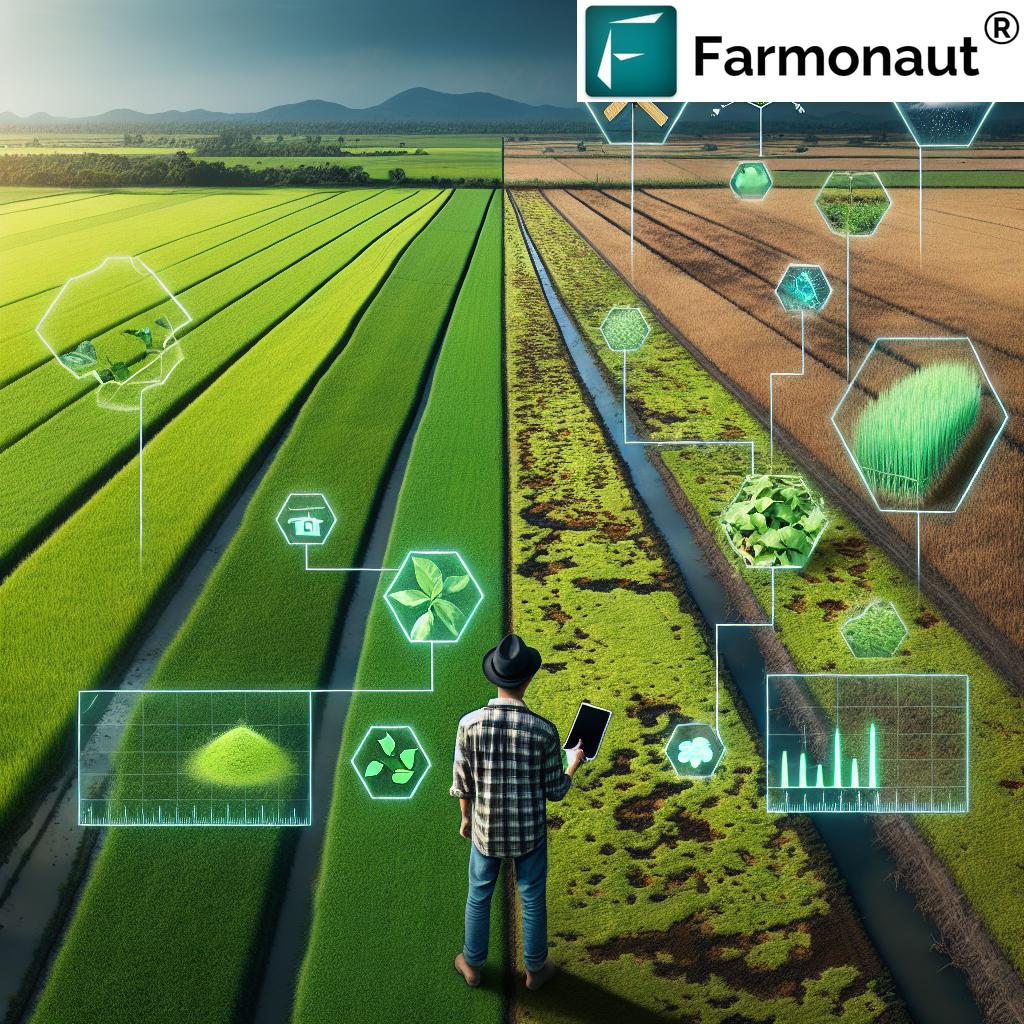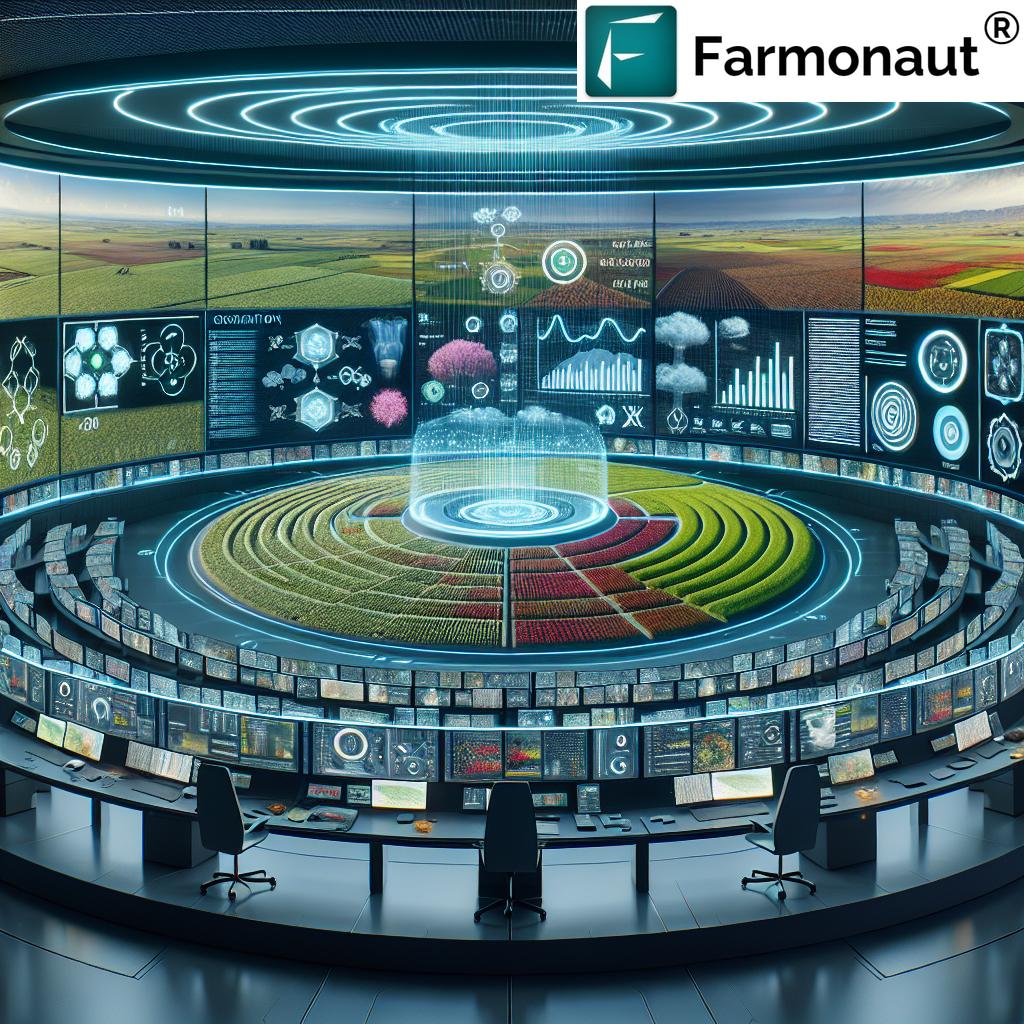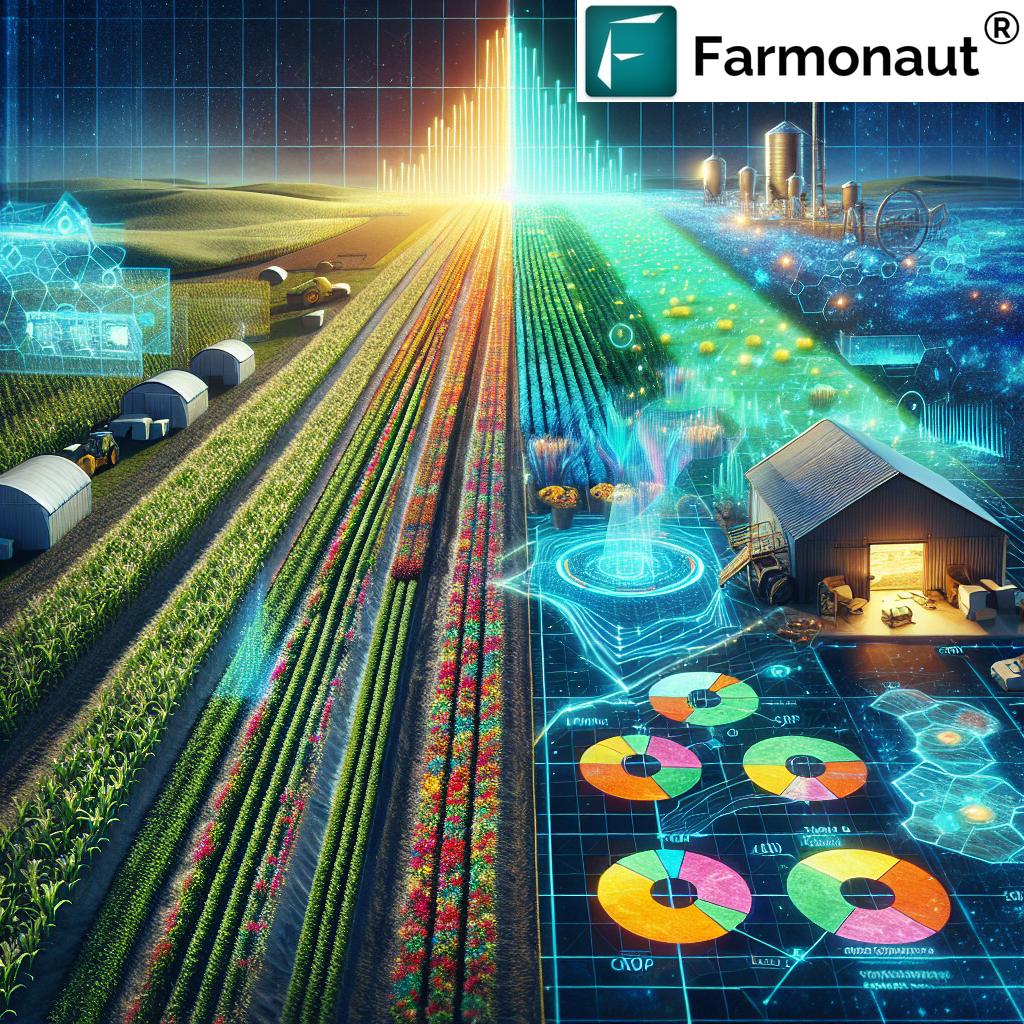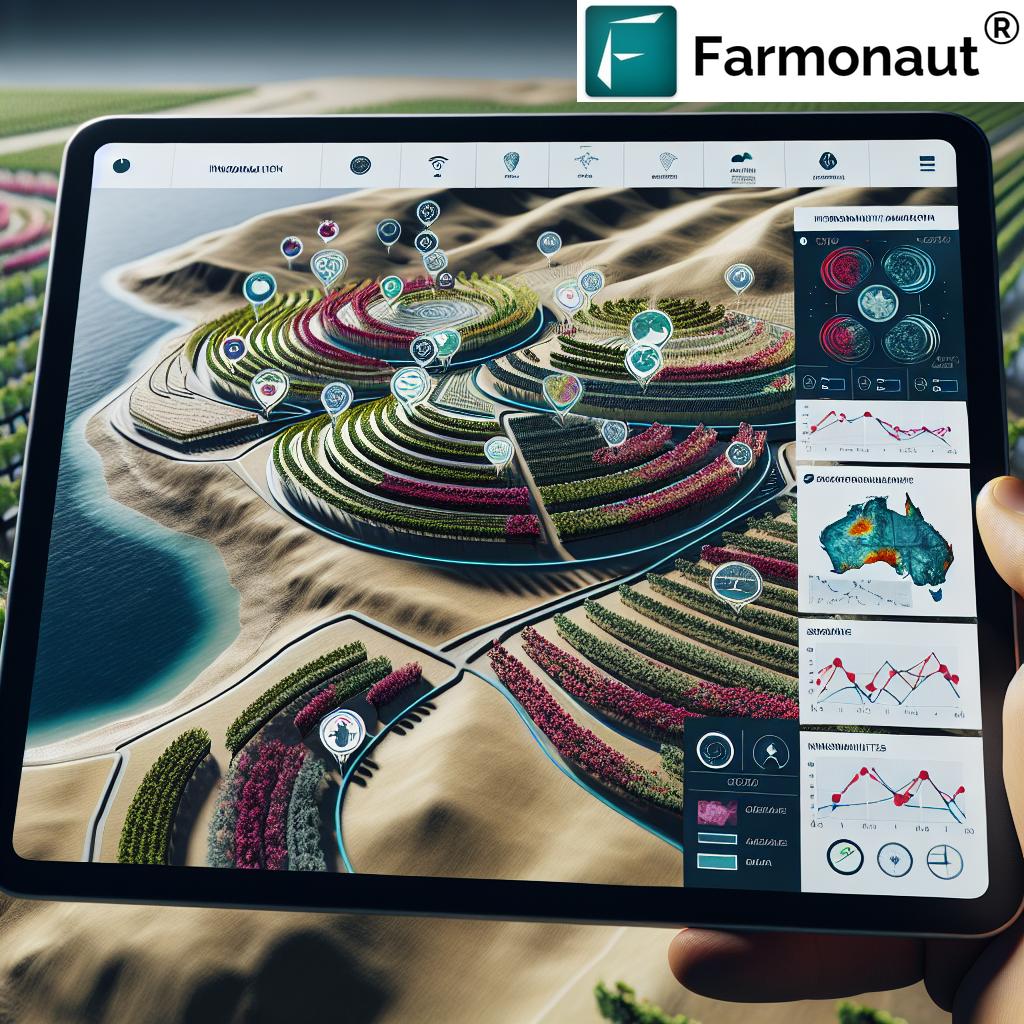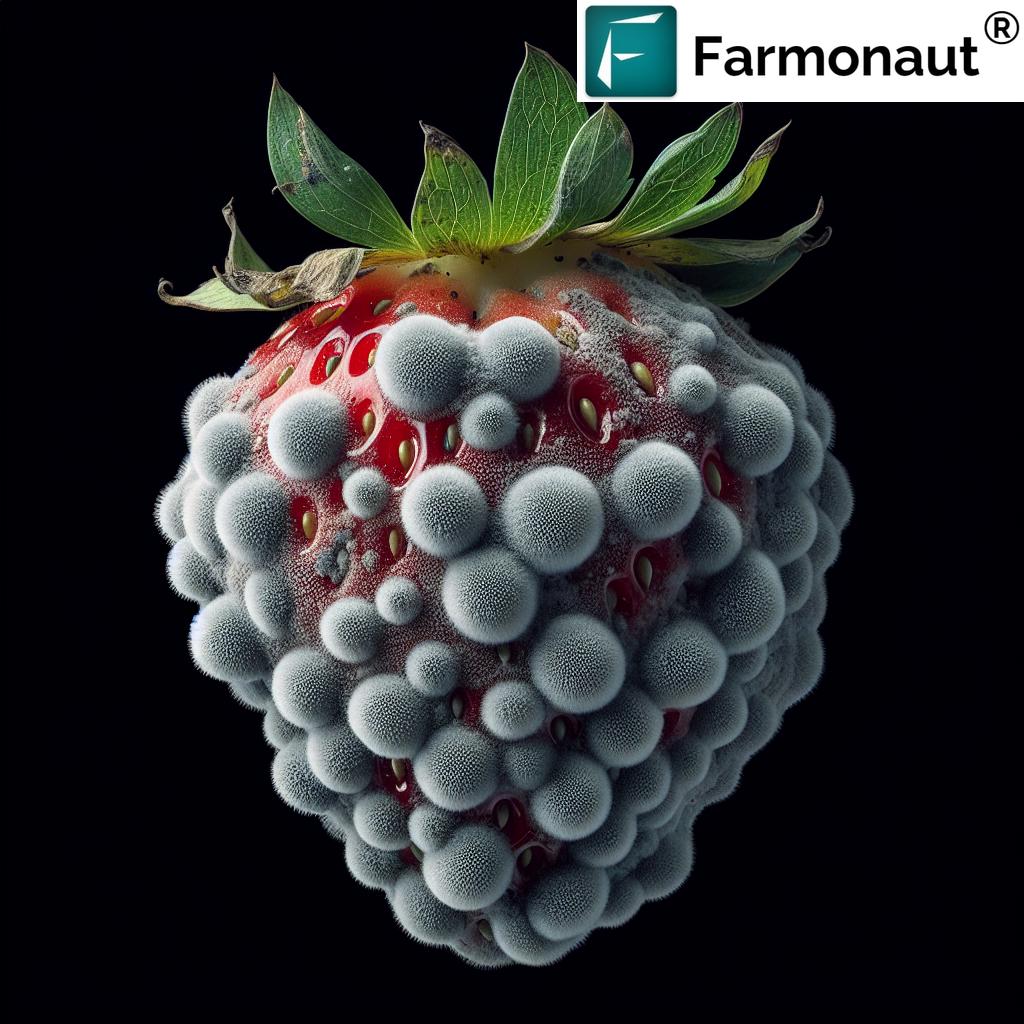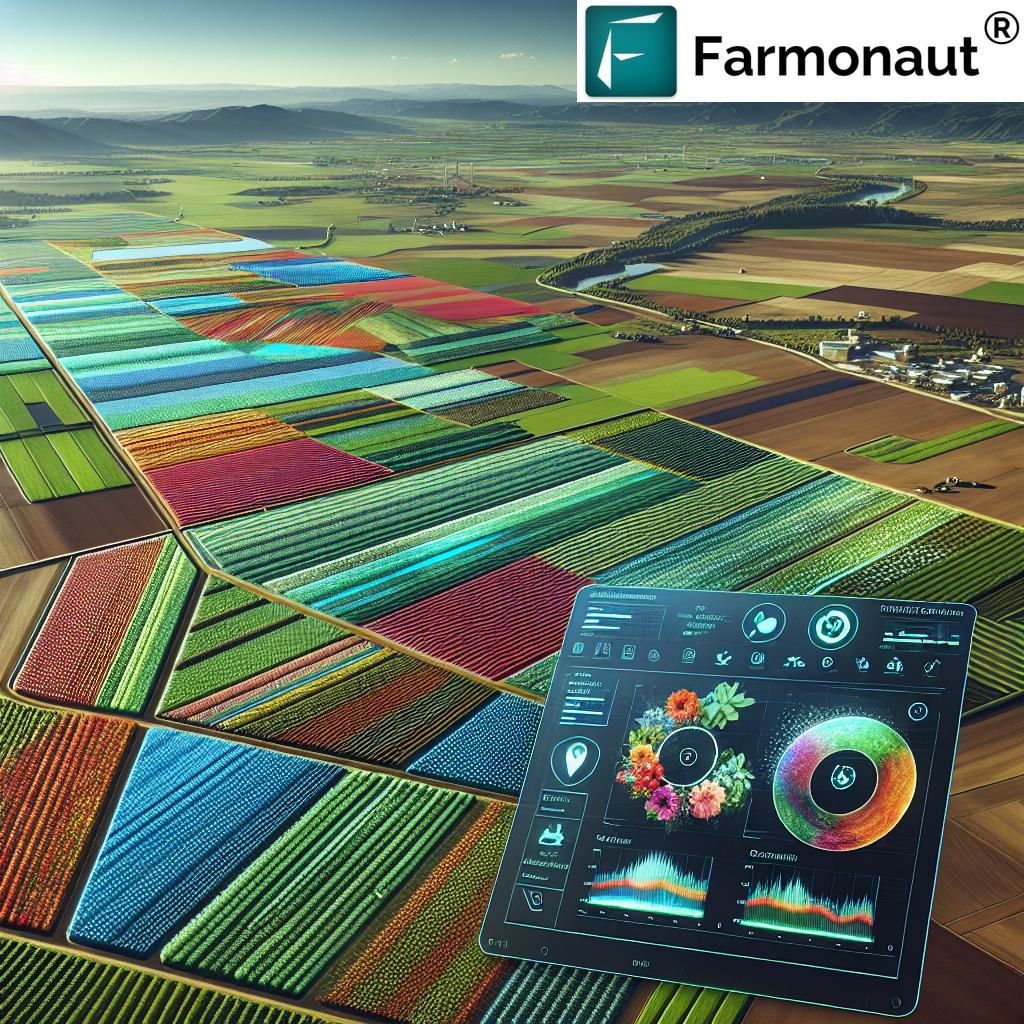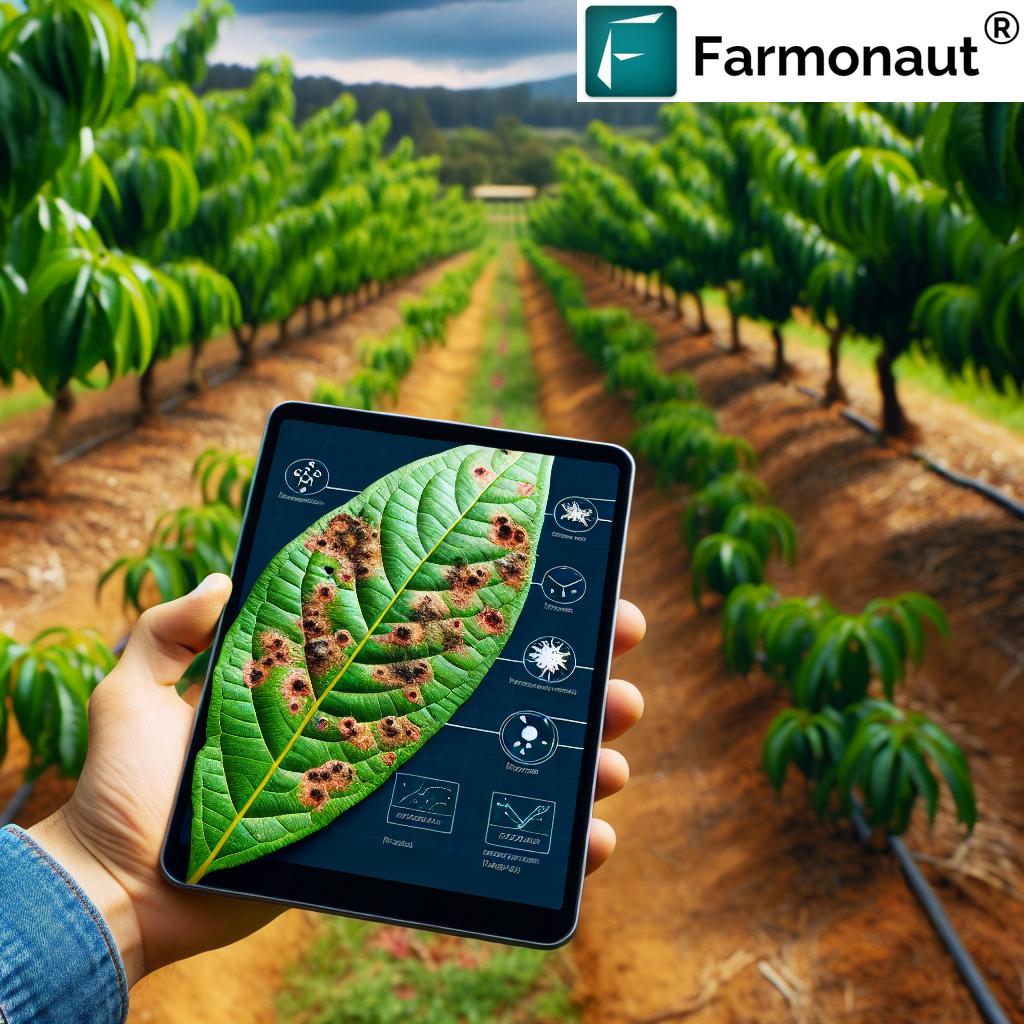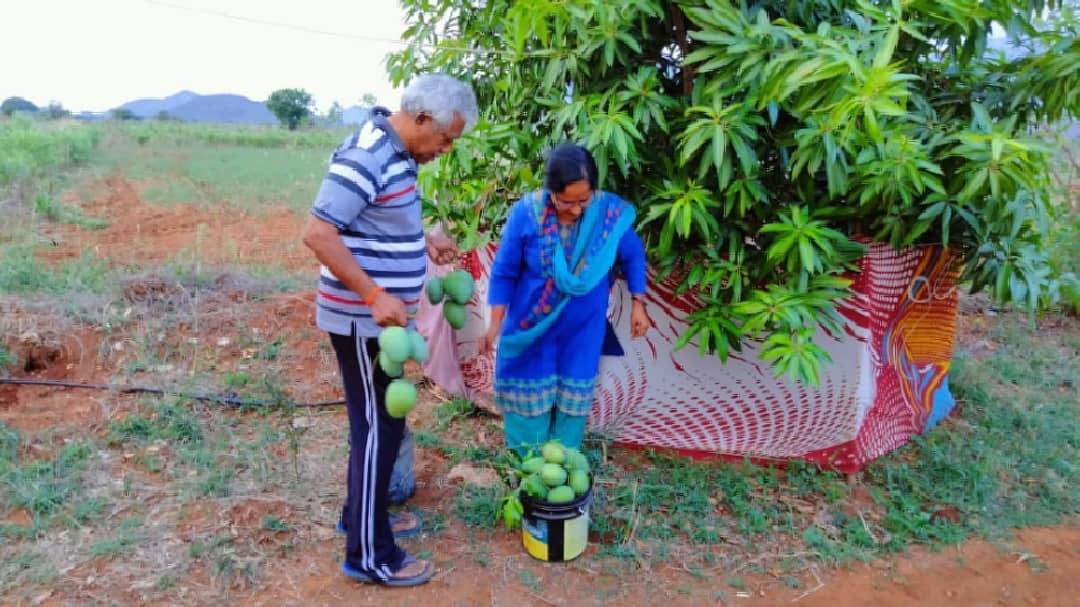
Harnessing the Power of Precision Agriculture: A Success Story from Viswamatha Farms
At Farmonaut, we’re constantly amazed by the incredible results that farmers achieve when they combine traditional wisdom with cutting-edge technology. Today, we’re thrilled to share an inspiring success story from Viswamatha Farms, where the fusion of natural farming practices and precision agriculture tools has led to a bountiful mango harvest.
The Perfect Blend: Natural Farming and Precision Agriculture
Viswamatha Farms has long been committed to sustainable agriculture, embracing natural farming methods that work in harmony with nature. However, they recognized that to truly optimize their yields and resource management, they needed to incorporate modern technology into their operations. This is where our precision agriculture tools came into play, creating a powerful synergy between age-old wisdom and innovative solutions.
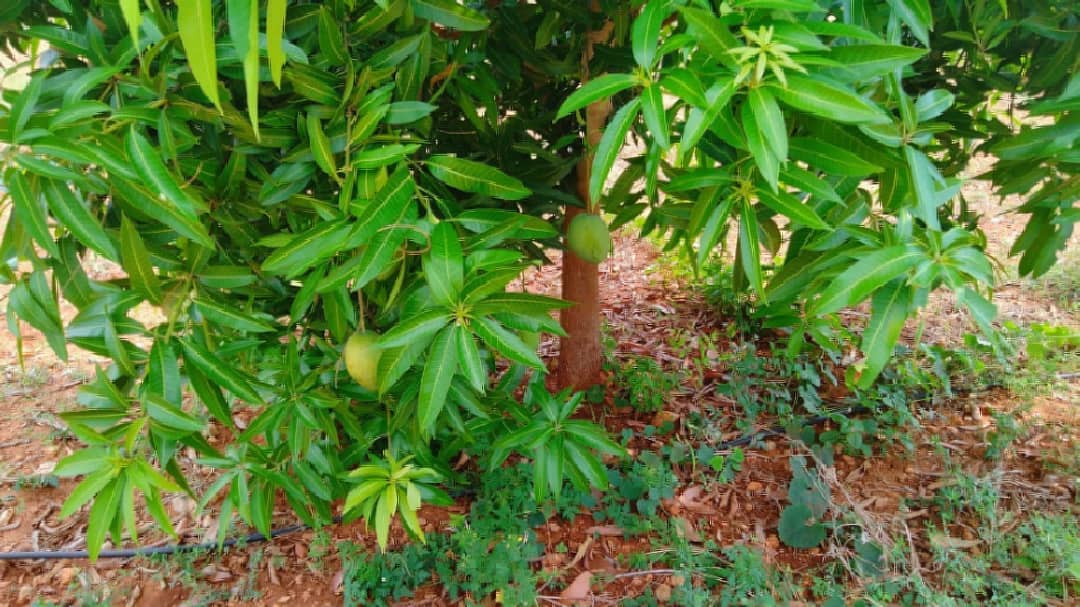
The Role of Remote Sensing in Agriculture
Remote sensing, particularly through satellite data for agriculture, has revolutionized the way we approach farming. At Farmonaut, we’ve witnessed firsthand how this technology can transform agricultural practices, leading to more efficient and sustainable operations. Let’s explore the numerous benefits that farmers like those at Viswamatha Farms can reap by leveraging satellite data:
- Reduced Chemical and Fertilizer Consumption
- Lower Labor Costs
- Optimized Irrigation
- Increased Overall Yield
- Improved Soil Health Management
1. Reduced Chemical and Fertilizer Consumption
One of the most significant advantages of using satellite data in agriculture is the ability to reduce chemical consumption. By providing detailed insights into crop health across entire fields, farmers can identify specific areas that require attention. This targeted approach allows for the precise application of fertilizers and pesticides only where they’re needed most, significantly reducing overall chemical usage.
At Viswamatha Farms, this precision has not only led to cost savings but has also aligned perfectly with their commitment to natural farming practices. By minimizing chemical inputs, they’re able to maintain the delicate balance of their ecosystem while still ensuring optimal crop health.
2. Lower Labor Costs
Labor management is a crucial aspect of any farming operation, and satellite data can play a pivotal role in optimizing workforce allocation. By providing detailed maps of crop health and stress levels, farmers can direct their workers to areas that require immediate attention. This targeted approach not only increases efficiency but also reduces overall labor costs.
For Viswamatha Farms, this meant they could allocate their workforce more strategically during the crucial mango growing season. Workers were deployed to areas showing signs of stress or potential issues, ensuring that every part of the orchard received the care it needed without unnecessary labor expenditure.
3. Optimized Irrigation
Water management is a critical concern in agriculture, especially in regions facing water scarcity. Satellite data provides invaluable insights into soil moisture levels and plant water stress across entire fields. This information allows farmers to implement precision irrigation strategies, applying water only where and when it’s needed most.
At Viswamatha Farms, this capability has been a game-changer. By identifying areas of low plant water stress, they’ve been able to fine-tune their irrigation system, reducing water waste while ensuring their mango trees receive optimal hydration. This not only conserves a precious resource but also contributes to healthier, more productive trees.
4. Increased Overall Yield
The culmination of these precision agriculture practices inevitably leads to increased overall yield. By optimizing every aspect of crop management – from fertilization and pest control to irrigation and labor allocation – farmers can create ideal conditions for their crops to thrive.
Viswamatha Farms has experienced this firsthand with their impressive mango harvest. The combination of their natural farming expertise and our satellite-based insights has resulted in healthier trees, more abundant fruit, and higher quality produce.
5. Improved Soil Health Management
Maintaining soil health is paramount for sustainable agriculture, and this is where our Soil Organic Carbon (SOC) model comes into play. By identifying areas with low levels of organic carbon, farmers can take targeted action to improve soil health.
For Viswamatha Farms, this meant they could focus their soil enrichment efforts on specific areas of their orchard. By applying organic matter and implementing soil conservation practices where needed most, they’re ensuring the long-term fertility and productivity of their land.
The Farmonaut Advantage: Empowering Farmers with Cutting-Edge Technology
At Farmonaut, we’re proud to offer a comprehensive suite of precision agriculture tools that empower farmers like those at Viswamatha Farms to achieve remarkable results. Our platform combines the power of satellite imagery, artificial intelligence, and expert agricultural knowledge to provide actionable insights for farmers.
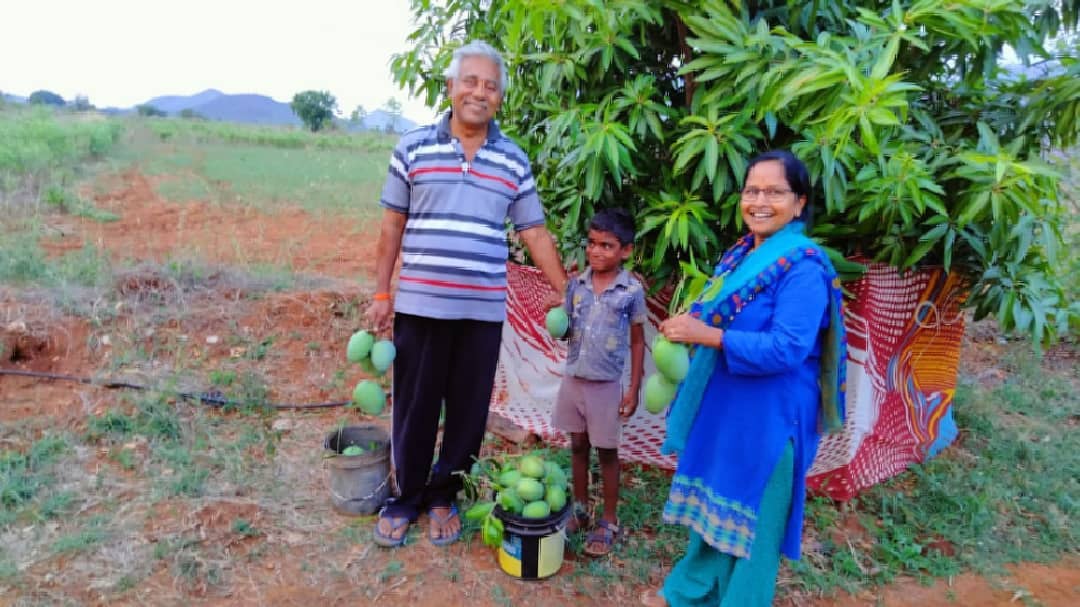
Here’s how our system compares to other farm monitoring technologies:
| Feature | Farmonaut Satellite System | Drone-based Monitoring | IoT-based Monitoring |
|---|---|---|---|
| Coverage Area | Entire farm at once | Limited by flight time and regulations | Limited by sensor placement |
| Frequency of Data | Regular updates (every 3-5 days) | On-demand, weather dependent | Continuous, real-time |
| Initial Investment | Low (subscription-based) | High (equipment purchase) | Medium to High (sensors and network) |
| Ease of Use | High (web and mobile app) | Medium (requires pilot expertise) | Medium (requires technical setup) |
| Data Analysis | Advanced AI-powered insights | Varies by software | Typically basic data visualization |
Our satellite-based system offers unparalleled coverage and convenience, making it an ideal choice for farms of all sizes. Whether you’re managing a small orchard or overseeing vast agricultural operations, Farmonaut provides the insights you need to make informed decisions and optimize your farming practices.
The Importance of Soil Organic Carbon
One crucial aspect of sustainable agriculture that we emphasize at Farmonaut is the management of soil organic carbon (SOC). The organic carbon range in soil is a key indicator of soil health and fertility. Typically, a healthy soil should have an organic carbon content between 1% to 5%, with higher percentages generally indicating more fertile and productive soil.
Our SOC model helps farmers like those at Viswamatha Farms to:
- Identify areas of their fields with low organic carbon levels
- Target soil improvement efforts more effectively
- Monitor changes in soil health over time
- Make informed decisions about crop rotation and soil management practices
By maintaining optimal levels of soil organic carbon, farmers can improve water retention, enhance nutrient availability, and create a more resilient ecosystem for their crops.
Addressing Common Crop Challenges: The Case of Mango Semilooper
While precision agriculture tools can significantly improve overall farm management, they’re also invaluable in addressing specific crop challenges. One such challenge that mango farmers often face is the mango semilooper, a common pest that can cause significant damage to mango orchards.
The mango semilooper (Penicillaria jocosatrix) is a caterpillar that feeds on mango leaves, potentially defoliating entire trees if left unchecked. Traditional methods of pest control often involve blanket applications of pesticides, which can be both costly and environmentally harmful.
However, with Farmonaut’s satellite-based crop health monitoring, farmers can:
- Detect early signs of pest infestation through changes in vegetation health
- Identify specific areas of the orchard that are most affected
- Implement targeted pest control measures only where needed
- Monitor the effectiveness of treatments over time
This approach not only helps in managing pests more effectively but also aligns with the principles of natural farming by minimizing chemical interventions and preserving beneficial insects and biodiversity within the orchard.
The Future of Agriculture: Sustainable and Tech-Driven
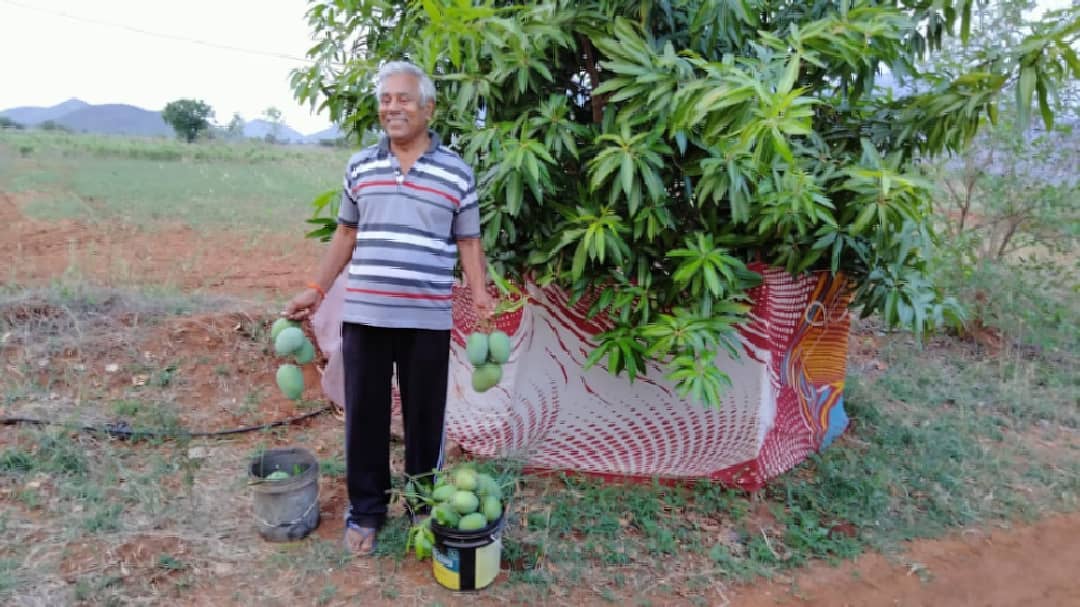
The success story of Viswamatha Farms is just one example of how the combination of natural farming practices and precision agriculture tools can lead to remarkable results. As we look to the future, we at Farmonaut believe that this fusion of traditional wisdom and cutting-edge technology will be key to addressing the global challenges of food security and environmental sustainability.
By leveraging satellite data, artificial intelligence, and expert agricultural knowledge, we’re empowering farmers to:
- Optimize resource use, reducing waste and environmental impact
- Increase crop yields while maintaining soil health
- Adapt to changing climate conditions more effectively
- Make data-driven decisions for improved farm management
- Contribute to more sustainable and resilient food systems
Join the Precision Agriculture Revolution with Farmonaut
Are you ready to take your farming operations to the next level? Whether you’re a small-scale farmer, a large agribusiness, or anywhere in between, Farmonaut has the tools and expertise to help you succeed. Our platform is accessible through web and mobile apps, making it easy to monitor and manage your farm from anywhere.
To get started with Farmonaut:
- Download our mobile app:
Android |
iOS - Access our web platform: Farmonaut Web App
- Explore our API for developers: Farmonaut API
- Learn more about our weather API: Weather API Documentation
Frequently Asked Questions (FAQ)
Q: What is precision agriculture?
A: Precision agriculture is a farming management concept that uses technology to observe, measure, and analyze the needs of individual fields and crops. It allows farmers to optimize their inputs, such as water, fertilizers, and pesticides, to improve crop yields, reduce costs, and minimize environmental impact.
Q: How does satellite data help in agriculture?
A: Satellite data provides valuable insights into crop health, soil moisture, and other key factors affecting farm productivity. It allows farmers to monitor large areas efficiently, identify problem areas quickly, and make data-driven decisions about resource allocation and crop management.
Q: Is Farmonaut suitable for small-scale farmers?
A: Yes, Farmonaut is designed to be accessible and beneficial for farmers of all scales. Our subscription-based model and user-friendly interface make it easy for small-scale farmers to leverage the power of precision agriculture without significant upfront investment.
Q: How often is the satellite data updated?
A: Farmonaut typically provides satellite data updates every 3-5 days, depending on the specific location and satellite coverage. This frequency allows for timely monitoring of crop health and field conditions.
Q: Can Farmonaut help with organic farming practices?
A: Absolutely! Farmonaut’s tools are particularly valuable for organic and natural farming practices. By providing detailed insights into crop health and soil conditions, our platform helps organic farmers optimize their natural pest control and soil management strategies without relying on synthetic chemicals.
Q: How does Farmonaut’s SOC model work?
A: Our Soil Organic Carbon (SOC) model uses a combination of satellite imagery, machine learning algorithms, and ground-truth data to estimate the organic carbon content in soil. This helps farmers identify areas that may need additional organic matter or changed management practices to improve soil health.
Q: Is technical expertise required to use Farmonaut?
A: While Farmonaut utilizes advanced technology, our platform is designed to be user-friendly and accessible to farmers with varying levels of technical expertise. We provide comprehensive support and resources to help users make the most of our tools.
Conclusion: Embracing the Future of Farming
The success of Viswamatha Farms in achieving an impressive mango harvest through the combination of natural farming and precision agriculture tools is a testament to the power of this integrated approach. At Farmonaut, we’re committed to making these advanced technologies accessible to farmers worldwide, helping to create a more sustainable and productive agricultural future.
By leveraging satellite data, reducing chemical inputs, optimizing resource use, and maintaining soil health, we can work together to address the global challenges of food security and environmental sustainability. The future of farming is here, and it’s a future where technology and nature work in harmony to produce abundant, healthy crops while preserving our planet for generations to come.
Join us in this agricultural revolution. Together, we can cultivate a brighter, more sustainable future for farming and for our world.
For more information or to get started with Farmonaut, please contact us at support@farmonaut.com or call +91-6366026267. Let’s grow together towards a more sustainable and productive agricultural future!


